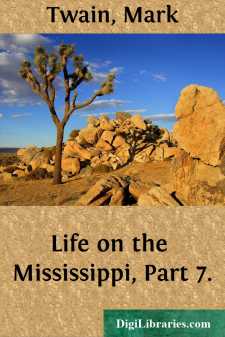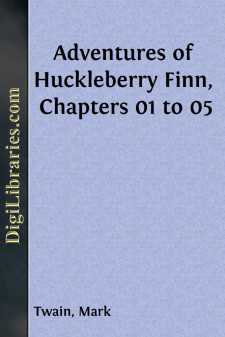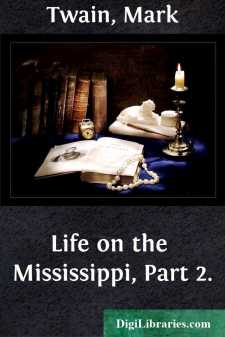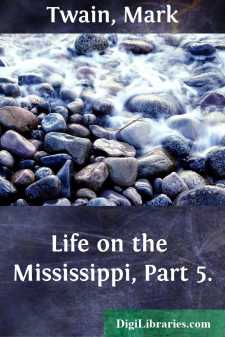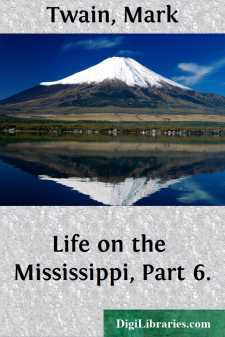Categories
- Antiques & Collectibles 13
- Architecture 36
- Art 48
- Bibles 22
- Biography & Autobiography 813
- Body, Mind & Spirit 138
- Business & Economics 28
- Children's Books 12
- Children's Fiction 9
- Computers 4
- Cooking 94
- Crafts & Hobbies 4
- Drama 346
- Education 46
- Family & Relationships 57
- Fiction 11821
- Games 19
- Gardening 17
- Health & Fitness 34
- History 1377
- House & Home 1
- Humor 147
- Juvenile Fiction 1873
- Juvenile Nonfiction 202
- Language Arts & Disciplines 88
- Law 16
- Literary Collections 686
- Literary Criticism 179
- Mathematics 13
- Medical 41
- Music 40
- Nature 179
- Non-Classifiable 1768
- Performing Arts 7
- Periodicals 1453
- Philosophy 64
- Photography 2
- Poetry 896
- Political Science 203
- Psychology 42
- Reference 154
- Religion 505
- Science 126
- Self-Help 81
- Social Science 81
- Sports & Recreation 34
- Study Aids 3
- Technology & Engineering 59
- Transportation 23
- Travel 463
- True Crime 29
Sketches New and Old, Part 7.
by: Mark Twain
Description:
Excerpt
I had never seen him before. He brought letters of introduction from mutual friends in San Francisco, and by invitation I breakfasted with him. It was almost religion, there in the silver-mines, to precede such a meal with whisky cocktails. Artemus, with the true cosmopolitan instinct, always deferred to the customs of the country he was in, and so he ordered three of those abominations. Hingston was present. I said I would rather not drink a whisky cocktail. I said it would go right to my head, and confuse me so that I would be in a helpless tangle in ten minutes. I did not want to act like a lunatic before strangers. But Artemus gently insisted, and I drank the treasonable mixture under protest, and felt all the time that I was doing a thing I might be sorry for. In a minute or two I began to imagine that my ideas were clouded. I waited in great anxiety for the conversation to open, with a sort of vague hope that my understanding would prove clear, after all, and my misgivings groundless.
Artemus dropped an unimportant remark or two, and then assumed a look of superhuman earnestness, and made the following astounding speech. He said:
"Now there is one thing I ought to ask you about before I forget it. You have been here in Silver land—here in Nevada—two or three years, and, of course, your position on the daily press has made it necessary for you to go down in the mines and examine them carefully in detail, and therefore you know all about the silver-mining business. Now what I want to get at is—is, well, the way the deposits of ore are made, you know. For instance. Now, as I understand it, the vein which contains the silver is sandwiched in between casings of granite, and runs along the ground, and sticks up like a curb stone. Well, take a vein forty feet thick, for example, or eighty, for that matter, or even a hundred—say you go down on it with a shaft, straight down, you know, or with what you call 'incline' maybe you go down five hundred feet, or maybe you don't go down but two hundred—anyway, you go down, and all the time this vein grows narrower, when the casings come nearer or approach each other, you may say—that is, when they do approach, which, of course, they do not always do, particularly in cases where the nature of the formation is such that they stand apart wider than they otherwise would, and which geology has failed to account for, although everything in that science goes to prove that, all things being equal, it would if it did not, or would not certainly if it did, and then, of course, they are. Do not you think it is?"
I said to myself:
"Now I just knew how it would be—that whisky cocktail has done the business for me; I don't understand any more than a clam."
And then I said aloud:
"I—I—that is—if you don't mind, would you—would you say that over again? I ought—"
"Oh, certainly, certainly! You see I am very unfamiliar with the subject, and perhaps I don't present my case clearly, but I—"
"No, no-no, no-you state it plain enough, but that cocktail has muddled me a little. But I will no, I do understand for that matter; but I would get the hang of it all the better if you went over it again-and I'll pay better attention this time."
He said; "Why, what I was after was this."
[Here he became even more fearfully impressive than ever, and emphasized each particular point by checking it off on his finger-ends.]
"This vein, or lode, or ledge, or whatever you call it, runs along between two layers of granite, just the same as if it were a sandwich. Very well. Now suppose you go down on that, say a thousand feet, or maybe twelve hundred (it don't really matter) before you drift, and then you start your drifts, some of them across the ledge, and others along the length of it, where the sulphurets—I believe they call them sulphurets, though why they should, considering that, so far as I can see, the main dependence of a miner does not so lie, as some suppose, but in which it cannot be successfully maintained, wherein the same should not continue, while part and parcel of the same ore not committed to either in the sense referred to, whereas, under different circumstances, the most inexperienced among us could not detect it if it were, or might overlook it if it did, or scorn the very idea of such a thing, even though it were palpably demonstrated as such....




